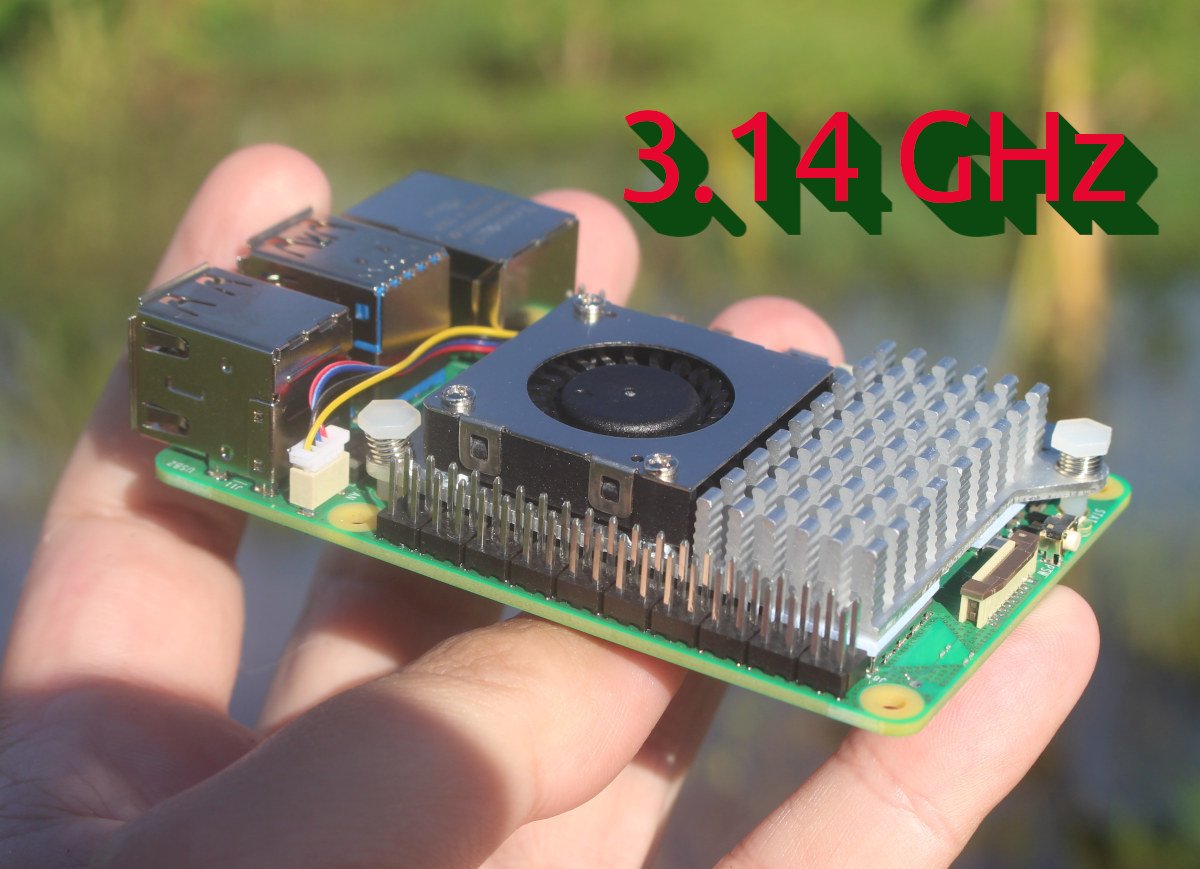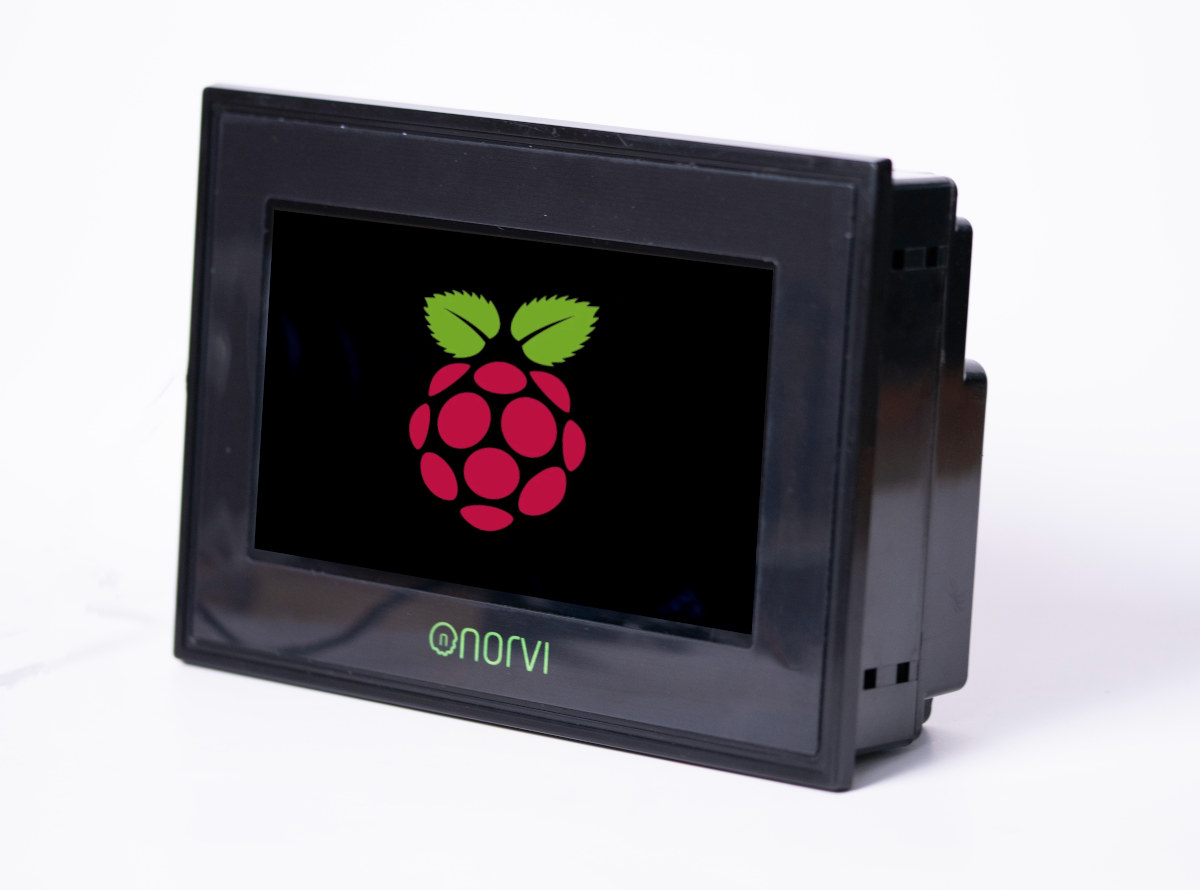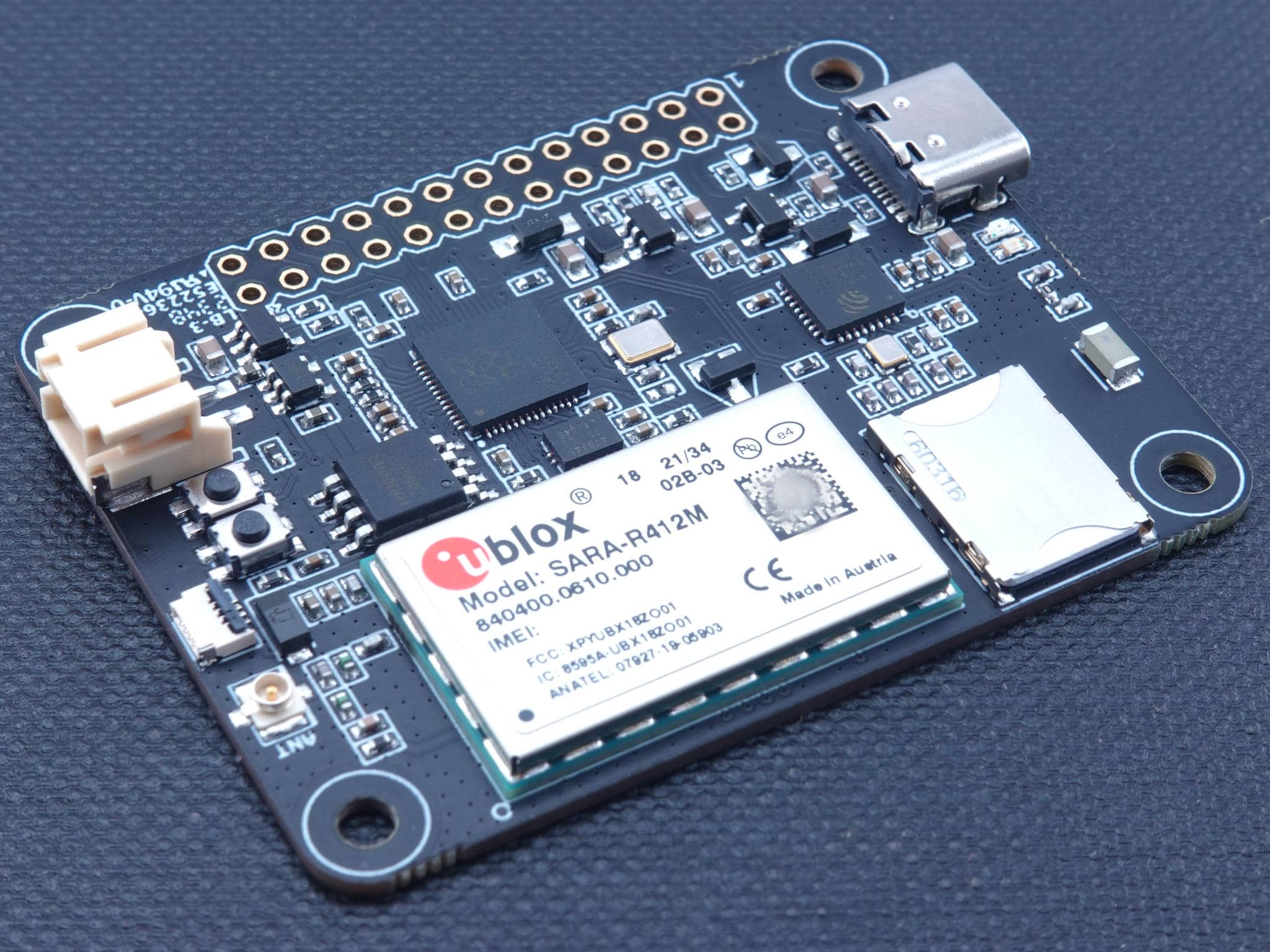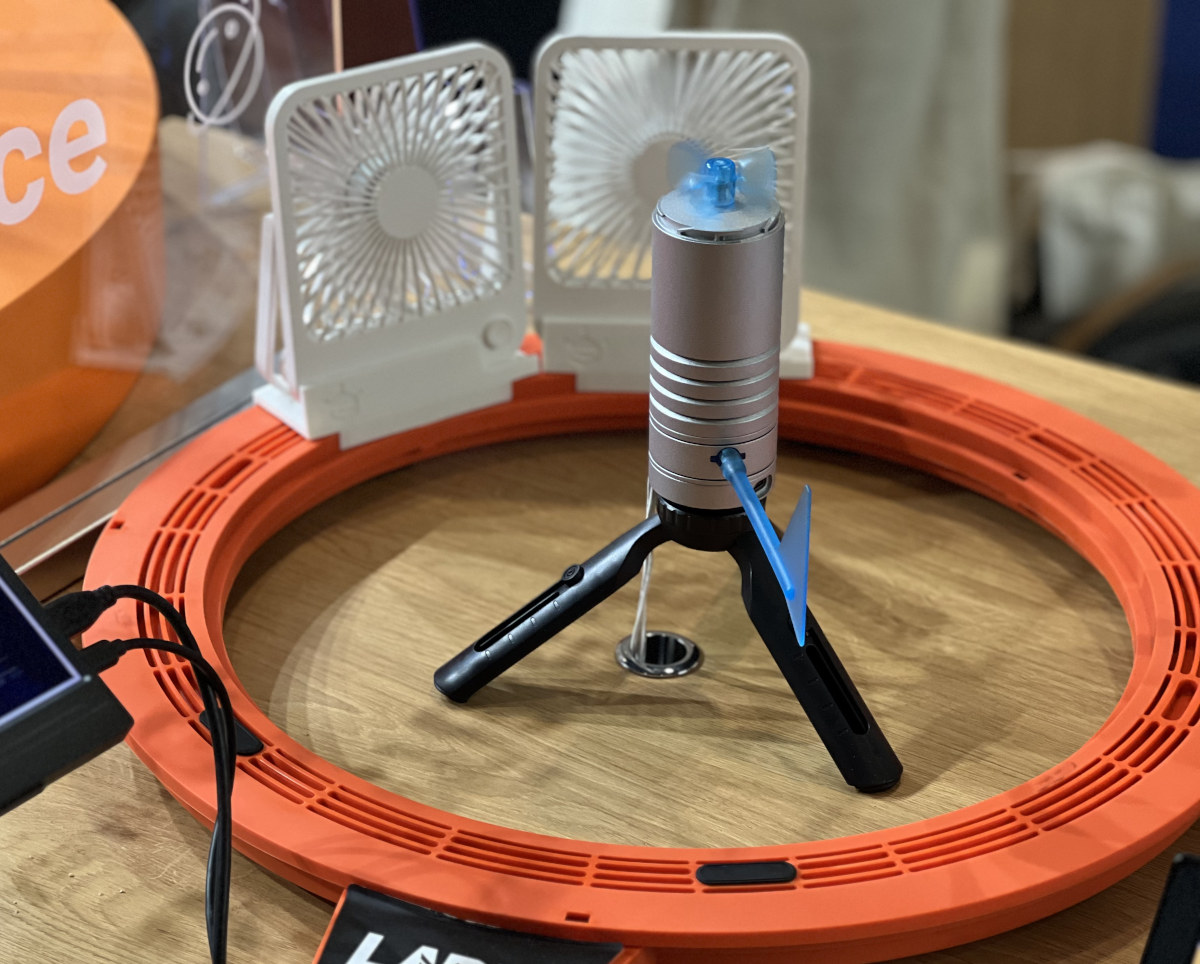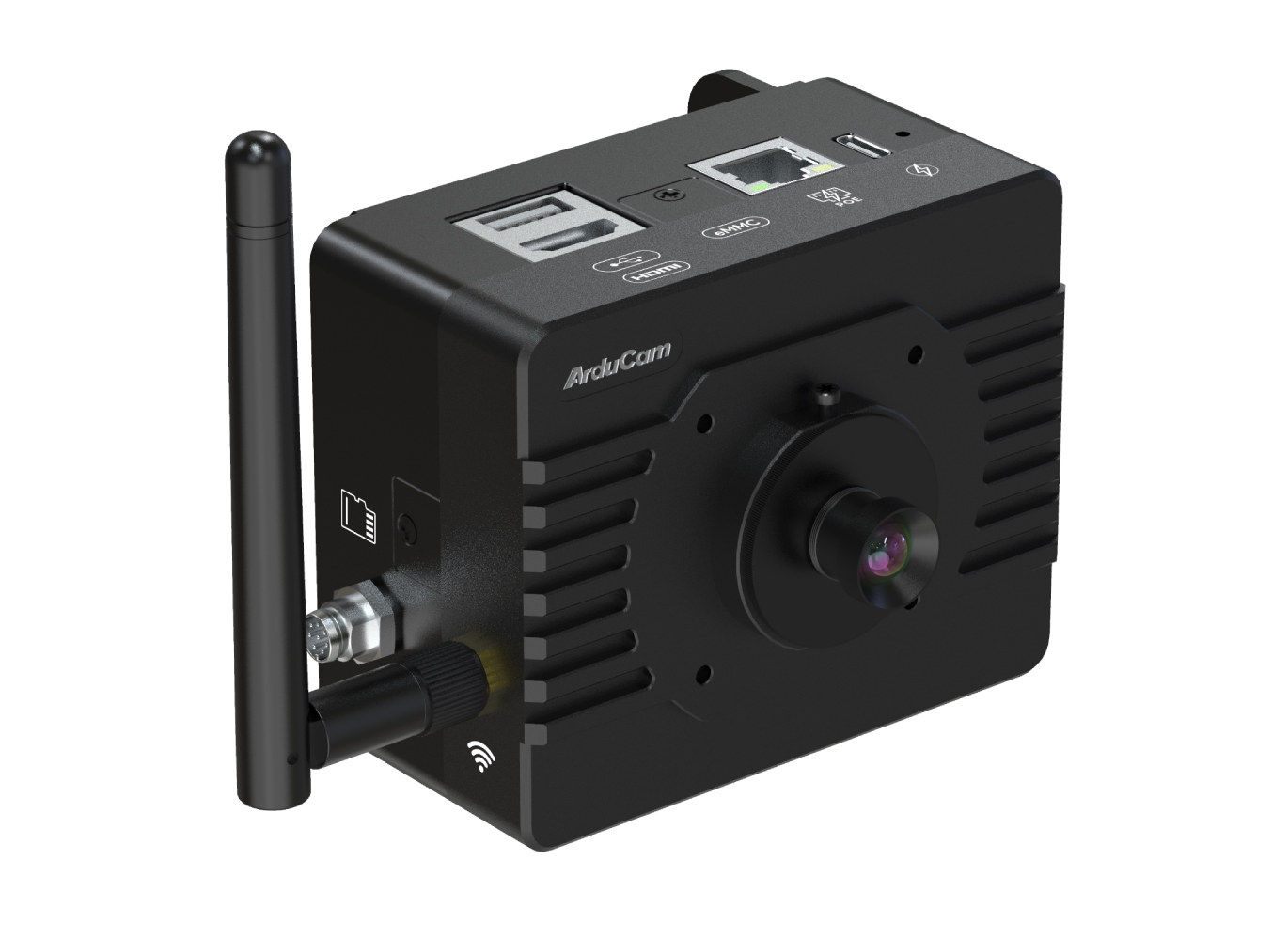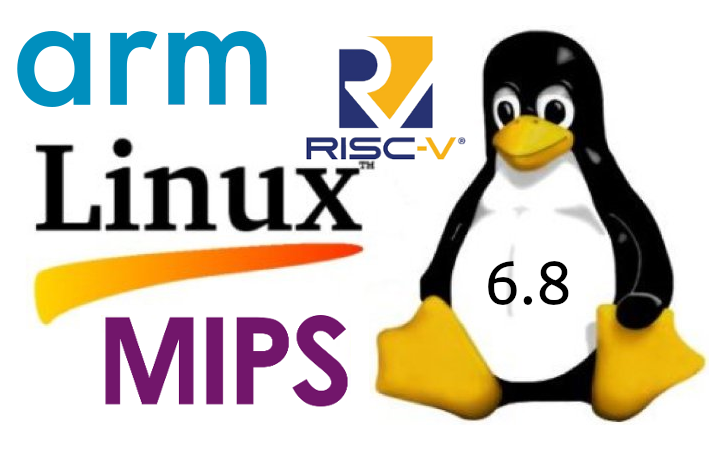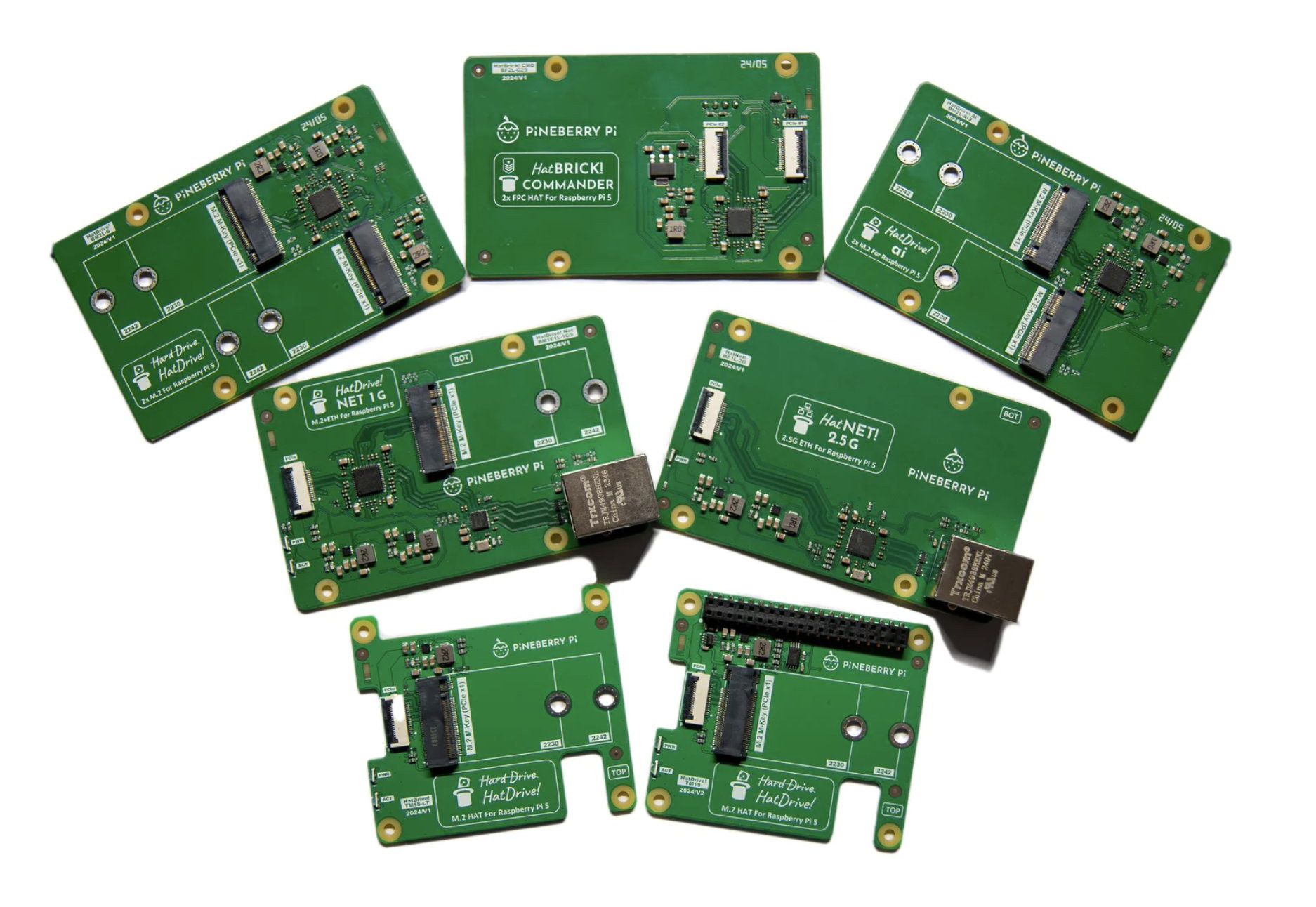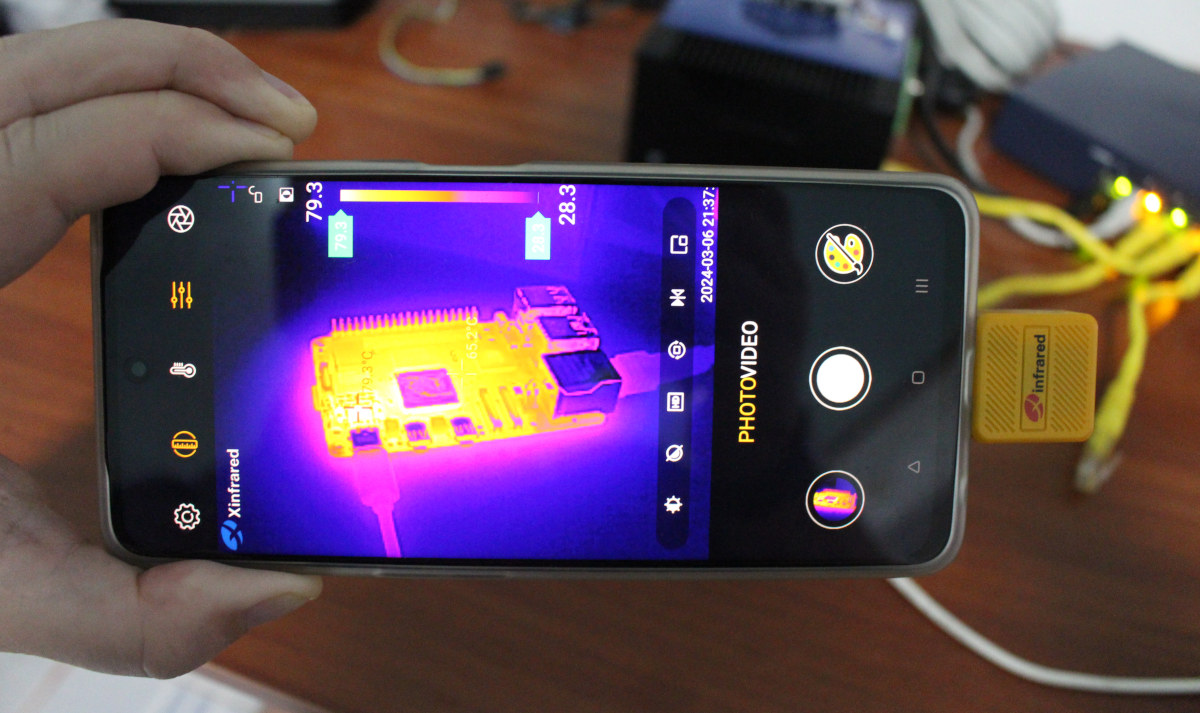The Raspberry Pi 5 is advertised as a single board computer with a CPU clocked up to 2.4 GHz, but some of the boards can run stably at a higher frequency, and Jeff Geerling found out one of his boards could be overclocked up to 3.14 GHz with no issues when running a stress test. The Raspberry Pi 5 already delivers a two to three-times jump in performance against the previous generation Raspberry Pi 4 SBC when clocked at 2.4 GHz, but some already overclocked their up to 3.0 GHz, and many thought it was the maximum limit. But a recent firmware release proved them wrong, as it turns out some Raspberry Pi 5 boards can boot at 3.2 GHz and run stably at 3.14 GHz with an adequate cooling solution. The voltage was also adjusted in the config.txt to more or less safe settings. Contrary to the photo above, […]
7-inch Raspberry Pi CM4-based industrial HMI offers gigabit Ethernet, RS485 Modbus, digital and analog inputs
NORVI RPI-HMI is an industrial controller with a 7-inch touchscreen screen display powered by a Raspberry Pi CM4 and equipped with a range of interfaces including a gigabit Ethernet RJ45 port, a few USB ports, and several terminal blocks for RS485 (Modbus), digital and analog input, transistor outputs, and 24V DC power input. The new Raspberry Pi CM4-based HMI announcement follows the NORVI ESP32-HMI controller that was launched last December with an ESP32-S3 wireless microcontroller and a 5-inch LCD display with resistive touch. The NORVI RPI-HMI builds on that with a much faster Arm processor, a larger display with a capacitive touchscreen, gigabit Ethernet, and a wider range of I/Os that makes it suitable for various industrial HMI and PLC applications. NORVI RPI-HMI Industrial Controller specifications: SoM – Raspberry Pi CM4 SoC – Broadcom BCM2711 quad-core Cortex-A72 processor with VideoCore GPU System Memory – 1GB, 2GB, 4GB or 8GB LPDDR4-3200 […]
The RP2040 Connectivity Board — An IoT solution combining LTE, Wi-Fi, and BLE into a single platform
iLABs (Invector Labs), a European embedded equipment manufacturer, has released a new device, the RP2040 Connectivity Board, an IoT development board that is based on Raspberry Pi’s signature microcontroller IC, the RP2040. The RP2040 Connectivity Board features key IoT connectivity options such as LTE, Wi-Fi, and BLE (Bluetooth Low Energy). It is compatible with both Arduino and PlatformIO and is designed for professional and hobbyist users with wide-ranging connectivity needs. The SARA-R412M series module from u-blox handles cellular communication (LTE) and can be configured to enable multi-regional coverage in both GSM and LTE-M/NB-IoT radio transmissions. It features a unique and immutable root of trust and supports IoT security as a service. The RP2040 Connectivity Board also includes an Espressif ESP32-C3FN4 chip for Wi-Fi/BLE communication based on a RISC-V microcontroller core and implementing a Wi-Fi subsystem that complies with the IEEE 802.11b/g/n standard and supports various operating modes. The Bluetooth Low […]
The Lark Weather Station works with Arduino, ESP32, micro:bit, Raspberry Pi, and other boards
The Lark Weather Station measures wind speed, wind direction, temperature, humidity, and air pressure through a range of sensors and connects to popular development boards such as Arduino UNO, ESP32, BBC micro:bit, Raspberry Pi, or DFRobot Unihiker through I2C or UART. We’ve seen several projects for Internet-connection weather stations that retrieve weather data from the web and display the results locally, but the Lark Weather Station allows the users to get atmospheric data right in his/her current location thanks to its built-in anemometer, wind vane, and built-in sensors, as well as expansion interfaces for additional sensors. Lark Weather Station specifications: Storage – 16MB flash good to store about 160 days of data (when data is recorded once per minute) Sensors Compass Anemometer Wind Speed: 0.5~12m/s Cover to protect the anemometer during storage/transport Wind vane and wind direction shaft to report the wind direction (eight directions) Temperature Range –20~60℃ ±0.2℃ Humidity […]
Arducam KingKong – A Raspberry Pi CM4-based Edge AI camera with global shutter sensor, Myriad X AI accelerator
ArduCam KingKong is a Smart Edge AI camera based on the Raspberry Pi CM4 and system-on-module based on Intel Myriad X AI accelerator that follows the Raspberry Pi 5-powered Arducam PiINSIGHT camera introduced at the beginning of the year. The new product launch aims to provide a complete Raspberry Pi-based camera rather than an accessory for the Raspberry Pi 4/5. Smart cameras built around the Raspberry Pi CM4 are not new as we previously covered the EDATEC ED-AIC2020 IP67-rated industrial AI Edge camera and the StereoPi v2 stereoscopic camera used to create 3D video and 3D depth maps. The ArduCam KingKong adds another option suitable for computer vision applications with an AR0234 global shutter module, PoE support, and a CNC metal enclosure. ArduCam KingKong specifications: SoM – Raspberry Pi Compute Module 4 (CM4) by default CM4104000 Wireless 4GB RAM Lite (0GB eMMC). AI accelerator – Luxonis OAK SOM BW1099 based on Intel […]
Linux 6.8 release – Notable changes, Arm, RISC-V, and MIPS architectures
Linus Torvalds has just announced the release of Linux 6.8 on the Linux kernel mailing list: So it took a bit longer for the commit counts to come down this release than I tend to prefer, but a lot of that seemed to be about various selftest updates (networking in particular) rather than any actual real sign of problems. And the last two weeks have been pretty quiet, so I feel there’s no real reason to delay 6.8. We always have some straggling work, and we’ll end up having some of it pushed to stable rather than hold up the new code. Nothing worrisome enough to keep the regular release schedule from happening. As usual, the shortlog below is just for the last week since rc7, the overall changes in 6.8 are obviously much much bigger. This is not the historically big release that 6.7 was – we seem to […]
PineBerry Pi launches five additional HAT+ boards for the Raspberry Pi 5 with 2.5GbE, GbE, M.2 NVMe, and more
PineBerry Pi was the first company to launch a Raspberry Pi HAT+ board making use of the Raspberry Pi 5’s PCIe FPC connector with the Hatdrive! M.2 HAT for the Raspberry Pi 5 along with the HatDrive! Bottom expansion board that goes underneath the Raspberry Pi 5 SBC. The company has now launched five additional HAT+ boards for the Raspberry Pi 5 with various PCIe (NVMe/AI modules) and networking (2.5GbE, GbE) options. Here’s the list with basic specifications: HatNET! 2.5G – 2.5GbE for the Raspberry Pi 5 using a Realtek RTL8125BG controller, dedicated MAC address range (i.e. not randomly assigned), and an RJ45 jack with Activity and Link LEDs HatDrive! NET 1G – Gigabit Ethernet (Realtek RTL8111H) and M.2 M-Key socket for NVMe 2230,2242 SSD. Implemented through an ASMedia PCIe Gen 2 switch and booting with the SSD is not supported at this time. You may want to follow the […]
Xtherm II TS2+ review – A 256×192 thermal imager tested with an Android smartphone
Shortly after I wrote about the Mustool MT13S 2-in-1 thermal imager and multimeter, Xinfrared asked me if I wanted to review the Xtherm II TS2+ thermal imager for smartphones. They offer versions that work for Android or iOS smartphones, so the company sent me the Android version of the Xtherm II TS2+ for review. After listing the key features and specifications, I’ll go through an unboxing, and report my experience using the thermal imager with the OPPO A98 5G smartphone running Android 14. Xtherm II TS2+ specifications Minimum focus – 8mm Resolution – 256×192 Pixel Pitch – 12μm FOV – 44.9° x 33.4° Image Frame Rate – 25Hz NETD (Noise Equivalent Temperature Difference) – ≤40mK@25°C, F#1.0 MRTD (Minimum Resolvable Temperature Difference) – ≤500mK@25°C,F#1.0 Temperature Range Measurements- -20°C ~ +450°C with ±2°C or ±2% reading accuracy Operating – -20°C ~ +50°C Temperature Correction – Manual/automatic Power Consumption – <350mW Dimensions – […]


